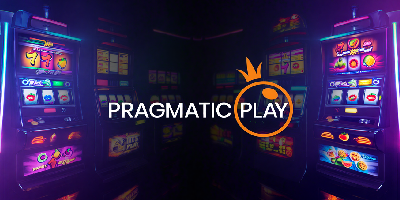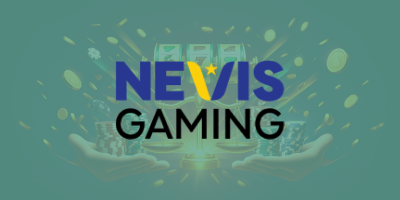
Casino Licenses
Have you ever asked yourself why some online casinos feel more trustworthy than others? The answer lies in the license held by the particular operator. But casino licenses are not just a rubber stamp for show. It’s a regulatory contract that binds operators to specific standards, and often with real teeth.
For players within Europe and beyond, understanding what a license means can help you dodge shady platforms. So, with this in mind, what then separates a trusted site from a fly-by-night operator?
Why casino licenses matter
Whichever way you want to look at gambling (good or bad), it has always been an area of concern for many governments. On one hand, if legalized, the benefits it brings to the table cannot be ignored. But the harmful effects it poses to individuals hidden behind the revenue are also blinding.
And it doesn’t stop with players because criminal elements also find gambling to be an attractive haven to conduct all manner of crimes, especially money laundering.
It’s such activities and concerns that we see the establishment of multiple licensing regulators and bodies. With these bodies, licensed casinos must include proper systems to mitigate illegal activities and also ensure players’ safety comes first.
But there’s the unique challenge of online gambling being international, and that means players from different countries can access another site even though it is not regulated in that jurisdiction. So you can clearly see why culture, legalities, and restrictions are important considerations should an operator decide to offer services in a preferred country.
Legal compliance
Having a casino license is not just a trust card operators can wave to customers. It’s also legal cover to show authorities that they adhere to the set laws and standards such as levy and data privacy (like GDPR in the EU).
Player protection
Licenses require operators to offer secure payment systems, test the games for fairness, and separate player funds from operational accounts. That means if the casino goes bust, your money should still be safe – assuming the license demands it.
The money is one aspect of player protection, but some regulators also take keen interest in player satisfaction, and therefore, they have specific processes that must be followed for players to report a casino.
But just like there are regulators that take player complaints seriously, there are those that really don’t get into the thick of things. Of course, that’s not the most attractive option for players interested in next-level protection.
Responsible gambling enforcement
One of the nagging problems very well-known to various jurisdictions, and even contributes to heated discussions is gambling addiction. The online gambling space is often at the center as being the main cause and that’s mainly because of licensing.
Prohibition is definitely not the best route to take because players will always find loopholes around it, like using VPNs. This then means the most practical and safe solution is regulating the online gambling industry where vulnerable players can get the necessary protection.
Examples of such protection include self-exclusion, loss/deposit limits, and the option to take breaks from gambling activities are now the norm with many regulatory authorities for any operator wishing to offer their services.
But even on top of this, some countries go to the extent of requiring casinos licensed in their jurisdictions to be in databases that allow players to self-exclude themselves from gambling, block the option to create an account, or play at any other operator with the same license. Some of these databases include Spelpaus in Sweden and GamStop in the UK.
How regulated casinos differ from unlicensed ones
You’ll invite chaos into your life if you enroll at unlicensed platforms, and that’s because these operators often ignore player complaints. In other cases, issues like delayed or even complete cancellation of withdrawals without any justification are common. Some operators even fail to provide proof of game fairness.
In the other corner of the ring, regulated casinos face frequent audits not only on the games and slots but also on their finances. Another notable feature of regulated online casinos is that they must follow the set guidelines by the respective authorities; otherwise, the consequences may include hefty fines.
But remember, not all licenses, however, are created equal.
Types of casino licenses

Licenses come in all shapes and forms based on the jurisdiction they serve, the level of protection offered to players, and generally, we can loosely group them into three main categories:
Strict regulation & high trust
Authorities in this category are the most demanding in that they require strong compliance, transparency, and auditing. And they tend to have more rigorous entry requirements and require potential operators to fill out plenty of paperwork, which means fewer rogue elements can sneak past them.
For example, the UK Gambling Commission (UKGC), which is arguably the world’s most demanding regulator, is known for its hefty fines and even suspending licenses for the most minor lapses. But even besides dealing with operators, this regulator also shows concern for players by requiring operators to offer excellent dispute handling and high financial transparency.
The Malta Gaming Authority (MGA), which is based in the EU, is rather easy on businesses because it strikes a sweet balance between operator flexibility and player protection. In fact, it offers multilingual support, detailed player fund protection rules, and efficient license tracking tools that have seen the authority issue over 200 B2C licenses as of 2025. Many of these license holders are casino brands across Europe.
Moderate regulation with international reach
The regulators in this category may not have the same bite as the UKGC or MGA, but they still maintain decent operational oversight. The most popular operators in this category include the Gibraltar Regulator Authority, which is more popular with the UK-facing casinos due to its tax benefits and consistent standards.
The Isle of Man Gambling Supervision Commission also falls under this category, and players can expect a rather independent but stable authority, offering players good fund protection.
Lastly is the Alderney Gambling Control Commission, which is often overlooked. But still, it’s respected within iGaming circles, especially because of its approach to remote gambling.
Flexible or emerging markets
The licenses that fall under this section are cheaper and easier to obtain, making them a fantastic entry point for most of the potential startups or crypto-first platforms. But just as is the case when buying products of poor quality, these licenses come with significant risks.
For example, the Curacao eGaming license offers minimal oversight, but some of its holders operate responsibly. Other notable licenses in this category include Anjouan (Comoros) and Costa Rica, which offer little player protection. In fact, Costa Rica doesn’t technically offer a gambling license but just a business registration.
Casino license directory
Scouring through the iGaming world can feel as though you’re in a marketplace where every stall is out, promising the best deal. But with a casino license directory, all that noise is drowned out to give you a clearer view of who’s sticking to the rules and who’s not. This table breaks down the different regulators and what they’re known for.
| License | Region | Known for |
| Malta Gaming Authority (MGA) | EU | High player protection and transparency |
| UK Gambling Commission (UKGC) | UK | Strictest compliance standards |
| Curacao eGaming | Global | Easy to obtain with broad acceptance |
| Gibraltar Regulatory Authority (GRA) | UK, EU | Balanced standards and tax benefits |
| Isle of Man Gambling | Global | Stable plus player-focused regulation |
| Alderney Gambling Control Commission | EU | High reputation and niche reach |
Curacao gaming license
Considered one of the most popular and oldest iGaming licensing countries, Curacao is a safe haven for many iGaming companies. This Dutch Caribbean island offers B2B and B2C casino licenses and many businesses find refuge here because of the straightforward licensing procedure. But what makes this jurisduction stand out is rather lenient when it comes to its regulations, not to mention the €55,000 fee needed to apply for a new license.
Malta Gaming Authority
Next to the UKGC in terms of strictness and high costs is the Malta Gaming license. But even with such stringent terms, many operators always choose this license in a bid to fit into the international radar. Plus, Malta is in the EU and obtaining a license from this jurisdiction means access to other EU markets.
The operator also has the players’ interests at heart, with responsible gambling tools, game fairness, and protection of player funds at the center.
UK Gaming Commision
Known as being the gold standard of gambling licenses worldwide, the UK gambling license issued by the UK Gambling Commission is tough on player protection along with a robust regulatory framework to promote responsible gambling.
Established in 2005 through the UK Gambling Act, the UKGC serves an extensive market not just in the UK but also worldwide. Of course, acquiring this license comes at a cost, which also includes taxes. However, the fees will depend on the revenue of the respective operator.
Gibraltar gaming
The Gibraltar license is not exactly as popular as the UKGC, Malta, or Curacao licenses. However, it offers extensive protection to players courtesy of its tough regulatory standards. That includes regulations on responsible gambling and anti-money laundering. And as the players enjoy protection, operators benefit from international reputation and even zero tax. But operators must present the licensing authority with a solid business plan to get a license.
Isle of Man
Issued by the Isle of Man Gambling Supervision Commission (GSC), the Isle of Man gambling license is quite popular among players residing in the British Isle. The license reach is also global and that’s because the authority stipulates extensive licensing regulations which include top-tier player protection and security standards.
For operators, this license comes with certain goodies which include zero taxes on the gambling profits they make and low corporate taxes.
Alderney gambling license
The presiding authority that issues gambling licenses in this British Crown dependency is the Alderney Gambling Control Commission. It started operations in May 2000 and features a broad regulatory framework for operators applying for a license. For example, companies must have a physical address in the jurisdiction and they must pay the required licensing fees, which are quite reasonable considering there are no taxes or gaming duties.
How licensing affects players
You would be forgiven for thinking your casino’s license is just for show. Beyond the visual satisfaction of knowing your casino is licensed, that badge also actively shapes your experience in several important ways.
Payment security
What’s the one thing you’ll want some assurance on when playing at an online casino? Payment security, right? Of course, no player wants to play at a site known for shady transactions, which is why licensed sites are required to offer encryption and secure gateways. In fact, many payment providers like Visa and Skrill will not work with unlicensed operators.
Fair play and RNG audits
If you’re an ardent player, then there’s a solid chance you’ve come across allegations of certain game providers playing foul when it comes to fair play, and that’s not something any player would want to encounter.
Usually, licensing bodies would require game providers to provide certifications of fairness from recognized third-party auditors. They include the likes of iTech Labs and eCOGRA. Basically, these auditors check and ensure that RNGs (random number generators) are not tampered with.
Access to responsible gaming tools
Problem gambling is a real menace across the world, and to reduce its impact on players, some gambling authorities require casinos to include responsible gambling tools for effective mitigation. Some of these tools include deposit caps, cool-off periods, and time reminders.
UKGC-licensed casinos are actually so invested in player protection that they even lock out some users from trying to bypass GAMSTOP.
Dispute resolution processes
What happens when you cannot resolve a dispute with your casino? In most cases where regulators are not strict, chances are you’ll end up on the losing end and without anyone to defend you.
But that’s not the case with licensed casinos in structured jurisdictions because operators must have escalation paths. For example, the UKGC recommends using IBAS (Independent Betting Adjudication Service) for unresolved complaints.
Country restrictions and availability
Just because a casino brandishes a license on its website doesn’t mean you can access it. Licenses work in fixed jurisdictions, and that means, for example, UKGC sites won’t grant access to players from most non-EU countries.
On the other hand, Curacao websites frequently accept international traffic, basically because of the fewer restrictions imposed on operators.
Choosing a casino based on its license
After learning how licenses affect you as a player, what then should you consider when choosing an online casino
When it’s worth prioritizing a strict license
If you live in countries with regulated markets such as the UK, Germany, or Sweden, then it’s in your best interest to choose a strict license.
Another noteworthy scenario is when you’re interested in rock-solid security and dispute handling. Something else many players fail to include in their list is the type of payment method. Strict licenses only allow fiat currencies and traditional payment solutions, so it would make sense to choose this path only if this is how you wish to perform your transactions.
When flexibility might be preferred
Not everyone is looking for strict, caged-up operators. Some players are looking for a bit of wiggle room, some freedom to enjoy other features, and one of them is the ability to use cryptocurrencies like USDT or Bitcoin.
Then there’s the category of players that’s restricted from accessing casinos in certain jurisdictions because of strict regulators. Casual players should also consider this category because of the flexibility offered by these regulators.
How to check a casino’s license authenticity
Predatory online casinos lurk within the internet, and the only way to separate the wheat from the chaff is by verifying the license held by a particular casino. The importance of this simple step cannot be over-emphasized, especially after an investigation revealed that over 40% of license badges displayed by websites were either fake or expired. So you can see the importance of double-checking.
Speaking of crossing the Ts and dotting the Is with licenses, to check whether a license is valid, check the footer of the particular casino’s website for a license badge and click it. You’ll automatically be redirected to the official regulator’s page showing the validity of the license. Basically, what you’ll be looking for are expiry dates and business names, or whether the operators have had previous problems with the regulator.
Why licensing should guide your casino choices
In an industry where reputation is king, a casino’s license can say more than any flashy promotion or VIP scheme. But even though a license is your shield, it won’t fix every problem, although it should guarantee fair rules and responsible play options.
Even so, there’s no denying that unlicensed offerings may be tempting, especially with their massive bonuses or even anonymous access. But then again, license quality varies dramatically, which is why it’s important to further uncover the authority behind the license and understand how seriously they enforce the rules. And to do that, check out all the top casino licenses to learn more about how they operate.









































































